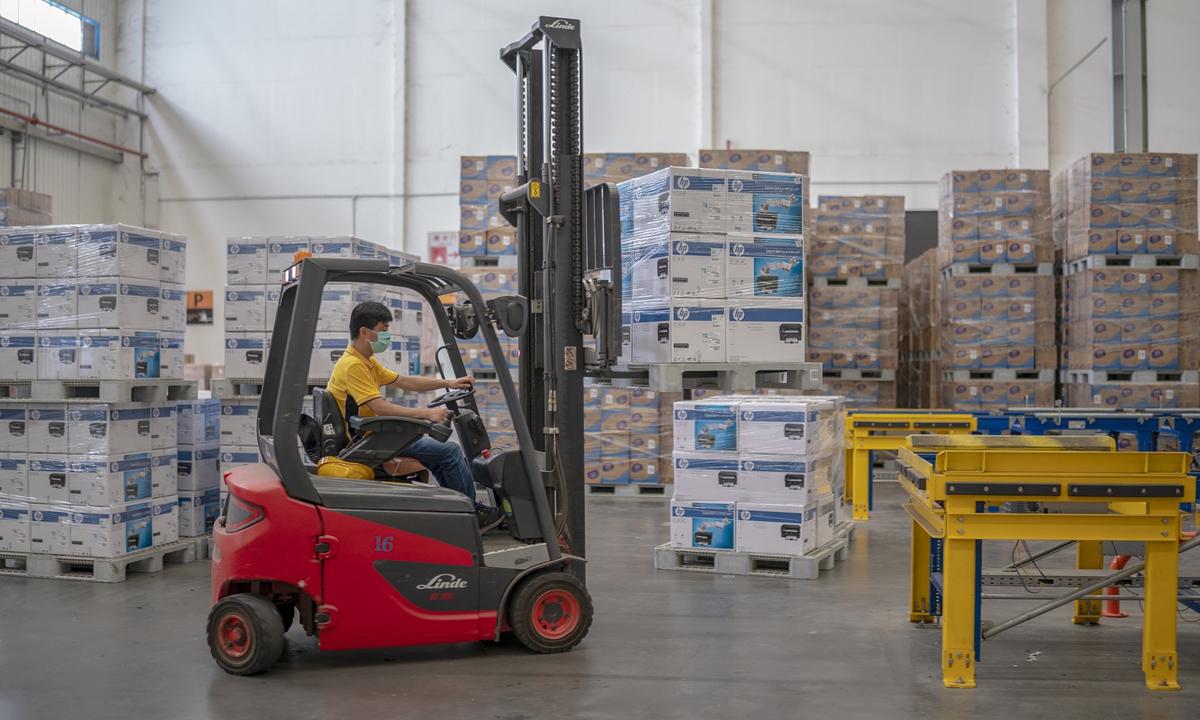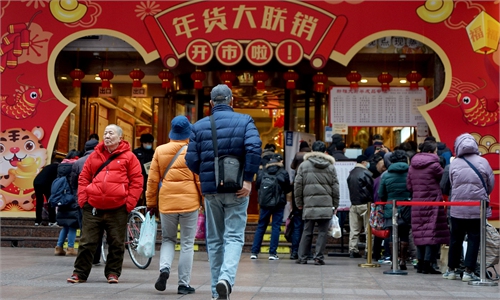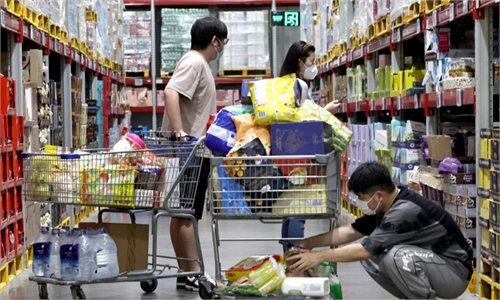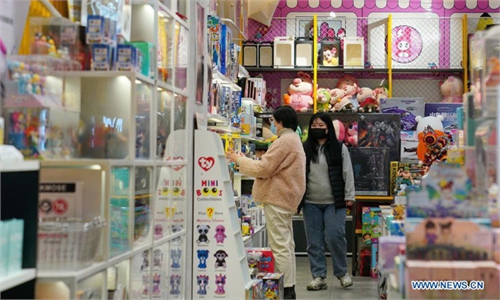E-commerce platforms provide firm support, logistics solutions for 618 shopping festival

A worker drives a forklift in a logistics sorting center in Nanjing, East China's Jiangsu Province on Thursday. With the"618" online shopping spree approaching, many logistics centers are getting ready for the big day. Photo: IC
Chinese e-commerce platforms like JD.com and Suning.com kicked off presales for the 618 (June 18) mid-year shopping festival on Monday. They're offering support to businesses to boost sales, as both offline and online consumption are facing challenges amid the epidemic flare-up.
Retail sales volume fell 11.1 percent year-on-year in April, the worst in two years, according to the National Bureau of Statistics.
Against the backdrop of weak consumption, analysts said that discounts for the 618 shopping festival will be higher than in previous years, and there may also be group-buying opportunities or related discounts for take-outs.
The festival would be combined with pilot programs involving the digital yuan. Platforms will hold joint activities with major manufacturers, Wang Peng, an assistant professor at the Gaoling School of Artificial Intelligence at the Renmin University of China, told the Global Times on Monday.
Suning.com, for example, said in a statement on Tuesday that it will cooperate with Haier, Hisense, Midea, Gree, TCL and other top 100 home appliance brands to promote tie-in purchases.
More than 11,000 Suning retail stores across the country will continue to offer services in the township-level market, such as trade-ins and extended warranty policies for home appliances.
The speed of logistics is a crucial issue for e-commerce platforms. Many have taken measures to support and accelerate deliveries. Alibaba's Tmall Global, which focuses on cross-border e-commerce, has provided a smart warehouse solution, allowing overseas vendors to stock their products in different warehouses across China, Tmall Global told the Global Times.
More than 29,000 overseas brands from 87 countries and regions have entered Tmall Global.
"It can greatly reduce the risk of logistics suspension due to COVID-19 controls, reducing costs and improving efficiency," said Bb LABORATORIES, a Japanese beauty brand.
Apart from stocking goods in a bonded warehouse in Jinhua, East China's Zhejiang Province, it also stocked a large number of products in a warehouse in Guangzhou, South China's Guangdong Province.
Alibaba's domestic logistics service provider Cainiao has adopted a similar smart warehouse system for domestic vendors, Alibaba told the Global Times.
E-commerce platforms will also simplify the discount mechanism for consumers this year, which has been widely mocked as being as "complex as attending the International Mathematical Olympiad competition."
But a Hangzhou-based industry insider surnamed Chen warned that sales will depend on people's consumption willingness, which is definitely declining.
"The good news is that new consumption habits can be formed, for example, partly prepared meals," Chen said.
Currently, the market potential for such meals is about 300 billion yuan ($45.1 billion).
"A series of recent central meetings and measures show that the digital economy has become an important part of China's national economy. The integration of digital platforms and technologies with traditional industries, especially related to consumption, including e-commerce, is bound to become an important track for future development," said Wang.




